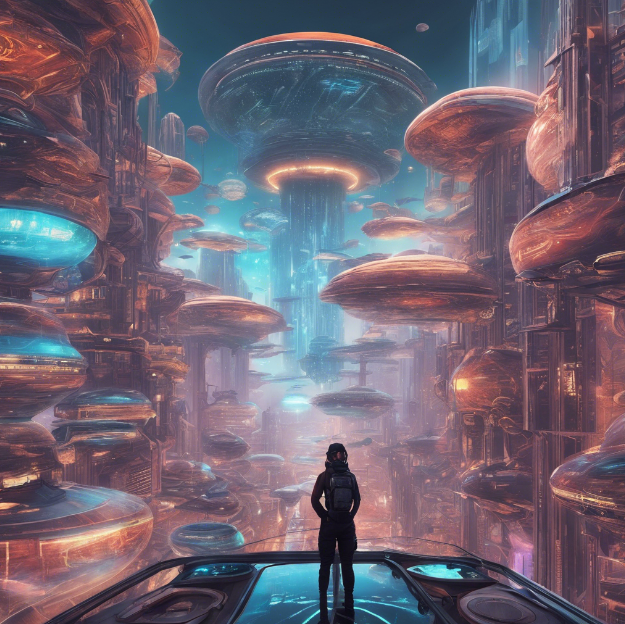The Metaverse: Utopian or dystopian future?
- Zayneb Dahhaoui El Barni

- 16 may 2023
- 2 Min. de lectura
Actualizado: 12 ago 2024
The metaverse is a fully immersive virtual space that allows users to interact and experiment with others, and it has become the object of desire of the technology industry in recent years.
Companies such as Facebook have recently announced that they will invest heavily in the
development of metaverses, and the metaverse market is expected to reach billions of dollars in the coming years.
However, while the concept of the metaverse sounds exciting and revolutionary, there are also many concerns about how it could affect our society. It is true that the metaverse will offer us many new opportunities and forms of connectivity, but on the other hand, it will also have many negative effects.
But does the metaverse represent a utopian or dystopian future?
From a utopian side, the metaverse can be a great opportunity for society and all humanity to be globally connected on a deeper and more meaningful level. The metaverse will allow people from all over the world to exchange ideas and work on projects together, it could also be a place where diversity and inclusion are the primary rules, where all individuals can explore and experiment with new identities and ways of being.
From a dystopian point of view, the metaverse could pose a threat to privacy and personal
freedom. This virtual space could also become a space of economic and social inequalities,
creating an even larger gap between rich and poor people.
In conclusion, the world is changing by leaps and bounds, and the metaverse signifies a great technological evolutionary leap. Whether it is a utopian or dystopian future will depend on how we use it and how legitimate concerns about privacy, freedom and equality are addressed.
ZAYNEB DAHHAOUI EL BARNI

.png)





Comentarios